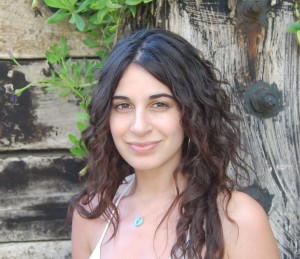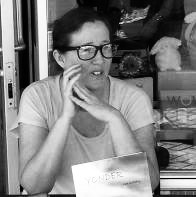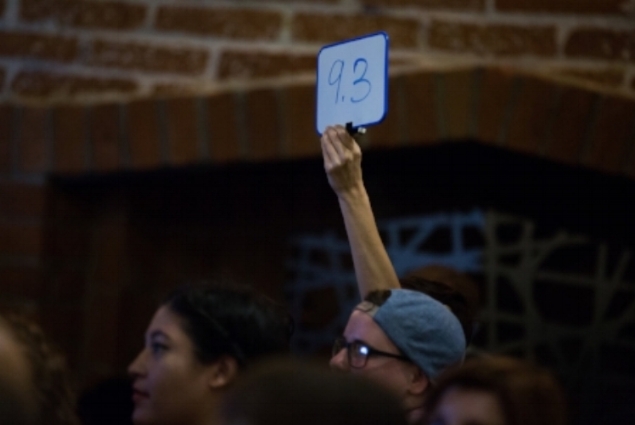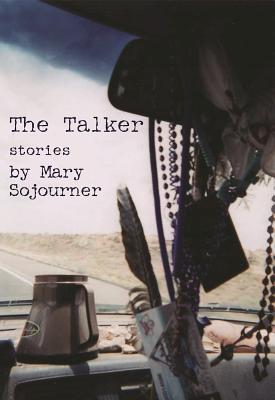 I was flattered and excited when Superstition Review asked me to write a blog post about the craft of poetry writing. I’d just started an MFA in poetry, so I felt particularly attuned to this question of methodology, though I was also more than a little aware of my own subjectivity as a writer who is continually learning.
I was flattered and excited when Superstition Review asked me to write a blog post about the craft of poetry writing. I’d just started an MFA in poetry, so I felt particularly attuned to this question of methodology, though I was also more than a little aware of my own subjectivity as a writer who is continually learning.
It’s with that spirit that I’m writing now to SR’s student-poet readers: less as an authority than as a fellow practitioner with a few best practices, ones that work for me and might also work for you.
The first thing that I have to say is this: If you’re like me, you’ll want to interrogate the aims of your poetry, especially as they relate to your reader.
I think it would be false to suggest that every poet faces the beginning of the writing process with a pre-determined notion of what he or she wants to write or hopes to accomplish by writing. In fact, poets debate about this: some suggest that if you don’t know from the beginning what you want to say, you won’t write anything very convincing, while others, especially those who advocate writing as a form of learning in itself, tend to suggest that you need to begin to write before you can really know what you want to express. Likewise, the question of audience is itself a dicey one; not every poet feels the need to imagine (or even feels comfortable imagining, or believes it is right or productive to imagine) the eventual possible interaction between the poem and its reader.
Still, I do feel that there’s something rewarding in the experience of considering, as you write, what you feel is at stake in what you are creating. What are you trying to communicate, not just literally but at all the levels of meaning that your poem might contain? Do you envision the person who reads your poem being different in some sense for having read it? Where might that difference lie – in emotion, in contemplation, in imagination? Do you want your reader to recognize himself or herself in your poem, or do you want to confront this as-yet imaginary person with the strange and unexpected – or maybe both?
Recently I had a dream in which people and events from my own life were rather surreally interwoven with the plot of a TV show I’d been watching late at night. It occurred to me that this subconscious fusion was a testament to the evocative quality of the show, which had so captured my emotional attention that in my dream, the boundary between my life and the fiction had become indiscernible. What if this type of interaction between text and reader were a goal of our poetry? How might that change the way we approach the writing process?
Of course, the relationship between writer and audience isn’t the only important one in poetry-writing. The experience of belonging to a community of writers – some of whom, we hope, will also be our readers – is for many people fundamental to writing poetry. And this brings me to the second thing I’d like to say: If you’re like me, you’ll feel better equipped to write when you learn from and participate in the work of invention.
What I mean by this is perhaps simpler than it might seem. Despite all the recent noise (much of it coming from outside the community of contemporary poets) about how today’s poetry is unmusical or prosaic or unoriginal, the stunning uses of words that I see every day in new poems have been enough to convince me that exciting things are happening and, critically, that there is a wealth of knowledge in those words – not just about poetry as an art in some larger, more monolithic sense, but about the poetry that I myself want to write.
That’s why I think it’s worth reminding yourself, as you read and write and change, not to be afraid to take lessons (figuratively speaking) from other poets who are writing today and whose work stirs you intellectually and emotionally. Don’t be afraid to admire, learn from, and even appropriate structures, syntax, and diction – new ways of choosing words and ideas and stringing them together. Think about how the formal inventions that you see in contemporary poetry might enhance the stories you want to tell in your own work.
At the same time, being part of a community of writers means being willing to experiment yourself, to add your own vision to the body of ideas about how we might express what we want to say. So don’t be afraid to invent. Instead, use the structures and strategies that excite you as a springboard for developing your own approach to the organization and language of poetry. Allow other voices to learn from yours, too. Be willing to imagine yourself as an equal participant in this world, someone whose perspective cannot be replicated.
And finally, as much as poetry is about these smaller communities of readers and writers, it’s also very much about the world at large. That’s why I’d like to end by saying this: if you’re like me, you’ll find it helps to keep your eyes and ears open.
Plenty of writers have waxed eloquent and effective about the virtues of looking around you: of eavesdropping, of people-watching, and ultimately of getting glimpses of your environment that you’ll find can inform your writing in surprising and satisfying ways. I’ve discovered that this is particularly true for me as a poet. I’ve found that when you write poetry, it helps to look for images in your world that interrupt or influence the direction or the rhythm of your thoughts. It helps to watch how other people live and how they shape the individuals and environments that surround them. You don’t have to assume that your poetry must necessarily be confessional or non-fictional or that you are obliged to be the “I” of your poem when you write in the first person. Although some people talk about poetry as an inherently non-fictional medium, you can in fact use the world around you to create beguiling fictions in your poems: fictions that are informed by lives and places that your work manipulates and reinvents in imagination.
I’ve prefaced each of these sections with the phrase “if you’re like me” because you might not be. One very happy thing about the community of contemporary poets is our diversity – not just the diversity of our experiences or our perspectives, but the diversity of our methodologies and our ideals. So maybe the best advice I can give is that you pay attention to yourself – to what works for you as a writer, to the best ways for you personally to approach language and ideas and the peculiar project of writing in verse. But you might at least find in these suggestions a place to start: techniques to explore, to resist, or to use as a platform for developing your own convictions about how we write.





